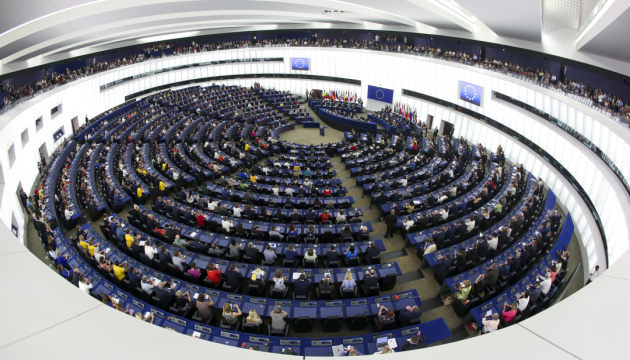The European Parliament adopted the law (Artificial Intelligence Law) that will regulate the rules in the field of artificial intelligence at its plenary meeting in Strasbourg today.
As Ukrinform reports, such information was published today on the website of the European Parliament.
523 members of the European Parliament voted in favor of adopting these new regulatory rules, 46 voted against and 49 abstained.
“The main aim of the document is to protect fundamental rights, democracy, the rule of law and environmental sustainability from the risks associated with AI (artificial intelligence), while also accelerating innovation and ensuring Europe’s leading role in this field. The document states that these regulatory rules will be based on artificial intelligence based on potential risks.” It is stated that it brings obligations regarding the use of intelligence.
The new rules ban the use of certain artificial intelligence programs that could threaten human rights, including certain categories of biometric systems, mass facial recognition that uses security cameras to create relevant databases. Recording emotional reactions in workplaces and schools, systems for recording social ratings, “intellectual” police actions based solely on compiling a person’s profile and assessing his personal characteristics are prohibited. Using artificial intelligence to manipulate people’s behavior or exploit their vulnerabilities is prohibited.
Law enforcement is also prohibited from using biometric identification systems, except in specific and clearly defined situations, such as searching for missing persons or preventing terrorist attacks.
It is expected to impose clear obligations and restrictions on the use of AI-based systems in other areas, for example in the operation of critical infrastructure, the education system, employment, and private and public services, including healthcare and banking. In order to reduce the risk of possible impact on voters, certain restrictions are also imposed on the use of artificial intelligence in some law enforcement systems and justice, structures related to migration regulation, border protection and election systems. .
All AI systems and related products must be clearly labeled and transparent in use. For example, artificial or altered images, audio and video content (also known as “deepfakes”) must have such a clear indication.
At the same time, regulatory authorities should be established at the level of member states to promote artificial intelligence innovations at the level of small and medium-sized enterprises and to provide appropriate training to their personnel in the use of artificial intelligence before products or services produced with its help enter the market. Sunday.
At this stage, the adopted regulatory norms are subject to legal review and must also be approved at the EU Council level. It will enter into force 20 days after its publication in the EU Official Journal.
As reported, the EU and its member states will use artificial intelligence in particular in the development of industry and energy, in digital transformation and the implementation of the “green route”, in the fight against climate change, etc. They see it as an important innovative component. .













